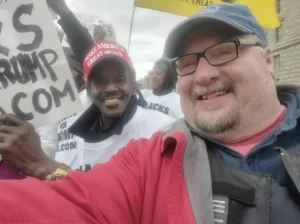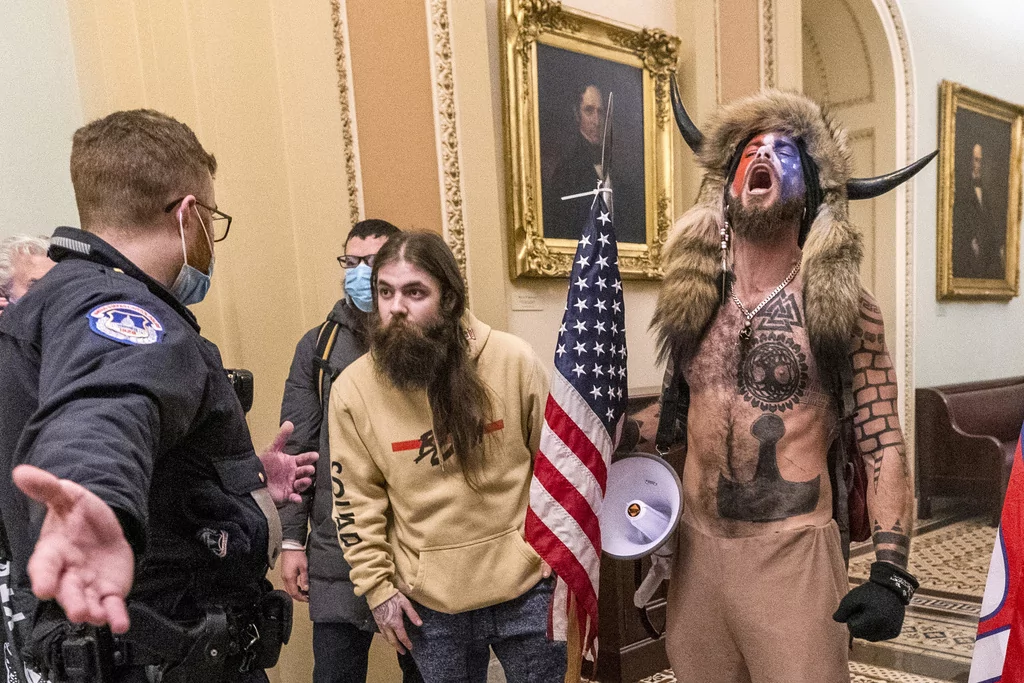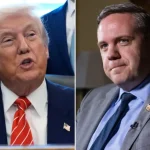
The Supreme Court ruled on Friday that prosecutors and judges used a charge too liberally at times in cases related to the Jan. 6 Capitol riot, and the decision is poised to directly affect some defendants involved in the 2021 breach.
In a 6–3 decision, the high court limited the scope of an obstruction charge that prosecutors brought against former Pennsylvania police officer Joseph Fischer, former President Donald Trump, and about 350 others, but legal experts say that only a subset of those defendants will see changes in their court cases.
The charge in question states that anyone who “obstructs, influences, or impedes any official proceeding, or attempts to do so” is violating the law.
Chief Justice John Roberts wrote in the majority opinion that the law should not be interpreted broadly but instead should be dependent on language in the overarching statute, the Sarbanes-Oxley Act, which passed in 2002 after the Enron scandal. The act specified that obstruction meant destroying or manipulating documents that were part of an official proceeding.
Fischer’s case
The Department of Justice accused Fischer, the Supreme Court case defendant, of violating the obstruction law when he allegedly charged into the Capitol on Jan. 6, yelling an obscenity and having a “physical encounter” with police. He was part of the hordes that barged into the Capitol that day and caused Congress to temporarily suspend its election certification process.

Fischer is facing a slate of charges, but he moved to dismiss the obstruction one because, he argued, he did not destroy or tamper with physical records, as the Enron-era law required.
The Supreme Court did not assess the merits of Fischer’s charge, but rather, it sent the matter back to the lower courts, where prosecutors must now convince a judge that Fischer violated the obstruction law in its newly narrowed form if they want the charge to stay intact.
Fischer will still be prosecuted for his other charges, regardless of whether he successfully averts the obstruction one.
The justice system ‘meat grinder’
Bill Shipley, a longtime attorney who has defended dozens in Jan. 6 cases, said options for those like Fischer who were hit with the charge will depend on where they are in the court process.
“There’s a variety of vehicles that become operative depending on where a defendant’s particular case stands,” Shipley told the Washington Examiner.
He said that those who have not been convicted yet, or those who have appeals of their convictions pending, could move to have their obstruction charges dismissed.
“Normally, the dismissal in that circumstance is going to be ‘without prejudice,’ meaning the government can try again,” Shipley said. “They can try to fix what the court has found to be wanting.”
More than 1,400 have faced charges ranging from minor trespassing violations to assaulting police officers to rare seditious conspiracy. All defendants charged with the obstruction violation also faced other charges, Attorney General Merrick Garland said in a statement on Friday.
“The vast majority” of defendants would remain unaffected by the Supreme Court’s decision, Garland said, adding the DOJ would “take appropriate steps to comply with the Court’s ruling.”
Defendants who have been convicted of or pleaded guilty to the obstruction charge and already served out their sentence, such as Jacob Chansley, better known as the “QAnon Shaman,” have little recourse.
In Chansley’s case, he reached a plea deal with the government and has already completed his 41-month prison sentence. Chansley’s attorney would, at this stage, have to move to vacate his felony, which could risk a judge offering the DOJ the option to re-work Chansley’s charges.

“For a defendant like Jake, who the only consequence of his conviction now is that he has a felony on his record, that defendant has got to think, ‘Do I want to go back into the meat grinder of the criminal justice system?” Shipley said.
Shipley said there are still some unknowns about how parties in the Jan. 6 cases will proceed and how judges in the lower courts will respond to the Supreme Court’s decision, and he emphasized that, in practice, the decision was not a “huge win” for the defendants.
But he, and others such as Tom Fitton, president of the conservative watchdog Judicial Watch, suggested the decision was validation for critics who have accused the DOJ of being overzealous in its approach to Jan. 6 defendants.
“It raises significant questions about the weaponization of government by the Justice Department,” Fitton told the Washington Examiner. “They twisted the law, aided and abetted frankly by judges who should have known better, in an attempt to increase the penalties for January 6 defendants.”
Implications for Trump
Trump is facing four charges related to Jan. 6. He could attempt to have the two obstruction charges dismissed in the wake of the Supreme Court’s decision, but the case hinges more on a forthcoming decision the high court will hand down Monday on whether Trump was immune from being charged at all.
Legal analysts at Just Security conceded that Friday’s decision dealt a “soft blow” to the government. They said, however, that “very few [Jan. 6] cases are likely to be materially affected” and that Trump’s case would be “materially unaffected.”
“The upshot is that the decision means little in terms of the pending charges against former President Donald Trump,” the analysts wrote, adding that the allegation Trump created “false evidence” in the election could be enough to satisfy the Supreme Court’s scope of the obstruction charge.
Special counsel Jack Smith has said as much in court papers, a sign that Smith would argue he correctly applied the obstruction charges if Trump were to challenge them.
Fitton observed that with the looming immunity decision and the ammunition the Supreme Court gave Trump with the Fischer case, Smith faces a steep uphill battle.
CLICK HERE TO READ MORE FROM THE WASHINGTON EXAMINER
“If you think of these as political cases, they lost,” Fitton said, pointing to both the Jan. 6 case and Smith’s classified documents case against Trump in Florida, which could also be affected by the immunity decision.
Fitton added that looking strictly at the legal aspects of the cases, “these are significant hurdles for Smith.”







